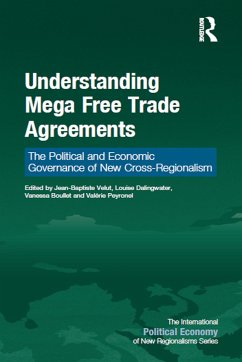
Quotas in International Environmental Agreements
Versandkostenfrei!
Versandfertig in 1-2 Wochen
70,99 €
inkl. MwSt.
Weitere Ausgaben:

PAYBACK Punkte
35 °P sammeln!
Quotas have been used in international environmental agreements for at least a century and, in tandem with incentive approaches, should continue to be crucial to realizing a sustainable environment. This text is a critical examination of quotas both as regulatory tools and as products of negotiation. It reviews the main features of environmental problems, the regulatory options and criteria used to judge them, and the various ways of explaining negotiated outcomes. Quotas in the management of fisheries, other resources, freshwater and marine pollution, and air pollution are also described. Sel...
Quotas have been used in international environmental agreements for at least a century and, in tandem with incentive approaches, should continue to be crucial to realizing a sustainable environment. This text is a critical examination of quotas both as regulatory tools and as products of negotiation. It reviews the main features of environmental problems, the regulatory options and criteria used to judge them, and the various ways of explaining negotiated outcomes. Quotas in the management of fisheries, other resources, freshwater and marine pollution, and air pollution are also described. Selected examples are considered in detail to provide an understanding of how quotas were developed in scientific, political, economic and social context. An assessment of the key features of quotas in practice leads to the identification of an emerging approach, the negotiation of constrained local quotas. The approach is a practical way to balance efficiency and fairness in complex negotiations, without sacrificing environmental effectiveness.














